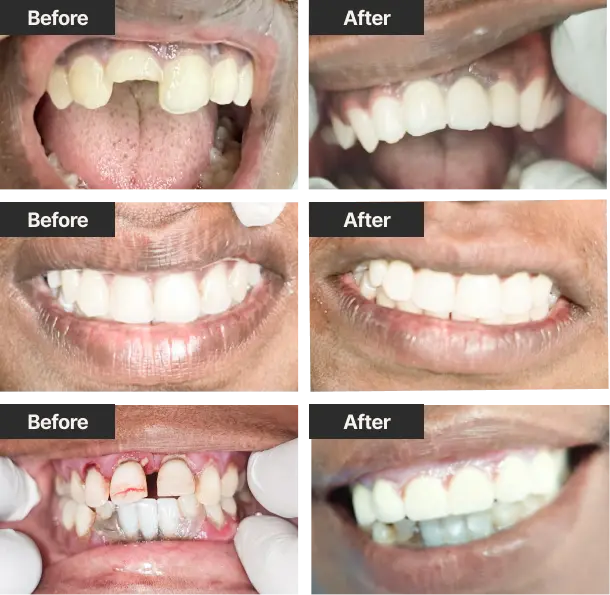Benefits of Porcelain Veneers
 Natural Appearance
Natural Appearance
Porcelain veneers are crafted to match the color, shape, and size of your natural teeth, providing a seamless and natural look.
 Stain Resistance
Stain Resistance
Porcelain is highly resistant to stains, helping to keep your smile bright and white for years to come.
 Durability
Durability
With proper care, porcelain veneers can last for many years, making them a durable solution for enhancing your smile.
 Minimally Invasive
Minimally Invasive
The process of applying veneers is minimally invasive, requiring only a small amount of enamel to be removed from the front surface of the teeth.
